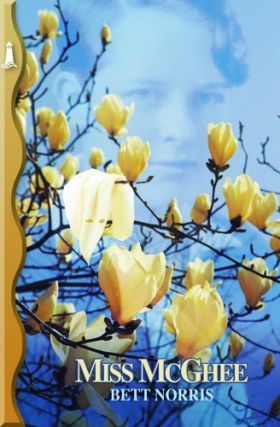The setting is the Southern USA during the span of time from 1948 – 1965. The title character is sent to the small town of Myrtlewood, Alabama, to work as a secretary for Tommie Dubose. Mary McGhee soon realizes, however, that she is not really working for Tommie, but instead her employer is the beautiful and precious Lila Dubose, Tommie’s wife. Mary becomes infatuated to the point where she can not remain silent but must make her feelings known. Once that small piece of the narrative is surmounted, the real story takes off.
This is a book about the civil rights struggle as seen from the microcosm of a small town in the South. Arguably, towns such as this were the front lines of the struggle. Trigger warnings apply for racism, violence, racist and misogynist slurs, and mentions of the KKK and its activities in every chapter. The author is white but does not censor the use of the n-slur in her writing.
The main characters are believable, even relatable. They have that subtle style of racism that comes from ignorance and is hard to recognize as part of the problem. And they get called out on it (by other white people). I don’t like that the story of the black civil rights movement is told entirely from the perspective of these rich white characters, with the one main black character, Annie, being there to nod and confirm that the white people are in fact right, racism does exist and it is a human rights violation. She is probably thinking “good job catching up on a child’s-level understanding of the issue,” but the book never actually shows what Annie is thinking. Annie is only finally given some character development and agency during the events at the end of the book.
On the other hand, the story does show a very good example of how to use white privilege to help marginalized groups, black Americans in particular. If more people like Mary and Lila (rich white people) put their money where their mouth is and helped the oppressed groups of our country, the social justice movement might finally accomplish some actual justice. Beware viewing the story through a lens of the white savior complex, however, lest we downplay the importance of the struggle that black Americans went through in those turbulent years and still encounter today.
Although the overarching story is that of real history, namely the civil rights movement, there is a major balance of focus on the cast of characters’ interpersonal relationships; between the two main characters, Mary and Lila, between Mary and her arch-nemesis Gerald Buchanan, between Lila and Annie who is her maid, and Lila and her disabled husband Tommie, and many many more characters, all fairly well-rounded and representing different types of people. The social politics of a small town are complicated and dynamic, and Bett Norris does a skillful job of portraying it well.
The one bisexual side character was shown in a bad light, or so I thought at first. The more she developed as a character the more I liked her, despite or perhaps because of her flaws. There was also a hint that she was gender-non-conforming , although no labels and no discussion of any depth about such things was included in the narrative.
In sum, the narrative is well paced and well written, the characters are fleshed out and flawed so as to read like real human beings, and the subject matter is very important, though in this instance it is being discussed by an inappropriate voice. White readers aware of race relations might take away a lesson here and there, as long as they are mindful of the problematic elements in the book. Black readers, especially ones who are lgbt, looking for representation and for their own history, will be disappointed and, quite rightly, insulted to find nothing for them. It is up to white readers whether we can stomach something that is clearly offensive to our fellow human beings, ones who are less privileged than us and used to being ignored and talked over. It would be easy to make excuses, and concentrate on the book’s merits, but I am washing my hands of this book. Despite the fact that it was a pleasant enough read for me, I cannot recommend it knowing that it is not fair to others.

